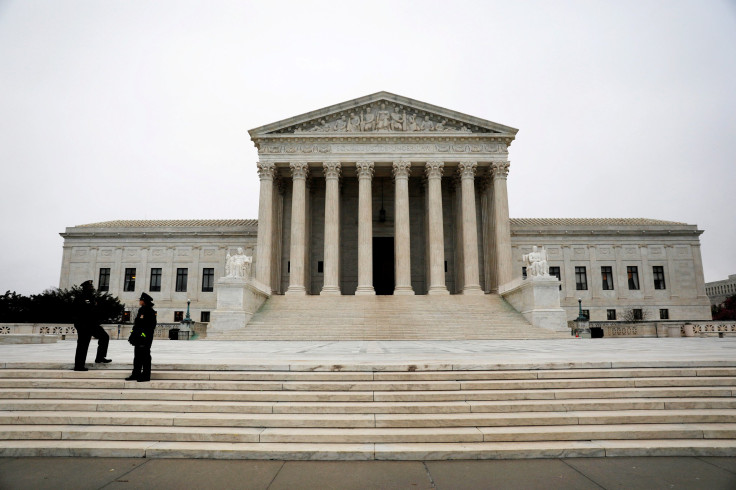
The Supreme Court ruled Friday that President Donald Trump's plan to end birthright citizenship nationwide may be enforced in some parts of the country, limiting lower-courts' preliminary injunctions.
The 6-to-3 decision, which was written by Justice Amy Coney Barrett and split along ideological lines, is a major victory for Trump, and may dramatically reshape how citizenship is granted in the United States, even if temporarily.
The court gave Trump a significant part of what he wanted: limiting the ability of plaintiffs to seek nationwide orders that temporarily halt the government from enforcing a policy. Those court orders are at the center of the president's monthslong battle with the federal judiciary over his attempts to unilaterally refine the nation's immigration policies, slash government spending and take over independent agencies, CNN reported.
"Federal courts do not exercise general oversight of the executive branch; they resolve cases and controversies consistent with the authority Congress has given them," Barrett, a Trump appointee, wrote for the majority. "When a court concludes that the executive branch has acted unlawfully, the answer is not for the court to exceed its power, too."
Justice Barrett also wrote that the executive order signed by Trump on the first day of his second term "shall not take effect until 30 days after the date of this opinion." The delay in the effective date of the court's ruling gives time for another way to challenge the orders: class actions, The New York Times notes.
With the bombshell decision, the Trump administration will effectively end the practice of extending citizenship to the children of undocumented immigrants born in the U.S. in the 28 states that have not challenged the measure. The details of how the policy would be implemented were not immediately clear.
Writing in the dissenting opinion, Justice Sonia Sotomayor said the majority had "shamefully" played along with the administration's "gamesmanship" in the case, which she described as an attempt to enforce a "patently unconstitutional" policy by not asking the justices to bless the policy, but instead to limit the power of federal judges across the country."
She warned that under the ruling, "no right is safe in the new legal regime the Court creates."
At the center of the case was the 14th Amendment and the question of whether birthright citizenship is enshrined in the Constitution. Judges across the political spectrum largely agree that the Constitution protects this right. However, Trump's executive order, which was blocked by lower courts, seeks to deny that protection.
The 14th Amendment reads: "All persons born or naturalized in the United States and subject to the jurisdiction thereof are citizens of the United States and of the state wherein they reside."
The White House has been vocal about revising the U.S. citizenship rules, which have been in place for more than 125 years, arguing the change would help address unlawful migration.
"It is this administration's policy to deport illegal alien families together, ensuring family unity," senior White House adviser Stephen Miller wrote on social media. "Ending birthright citizenship will contribute greatly to that goal."
U.S. Attorney General Pam Bondi quickly responded to the ruling Friday, backing President Trump's effort to curtail lower court orders that have hampered his agenda for months.
"Today, the Supreme Court instructed district courts to STOP the endless barrage of nationwide injunctions against President Trump. This would not have been possible without tireless work from our excellent lawyers @TheJusticeDept and our Solicitor General John Sauer," Bondi wrote on X. "This Department of Justice will continue to zealously defend @POTUS's policies and his authority to implement them."
© 2025 Latin Times. All rights reserved. Do not reproduce without permission.




